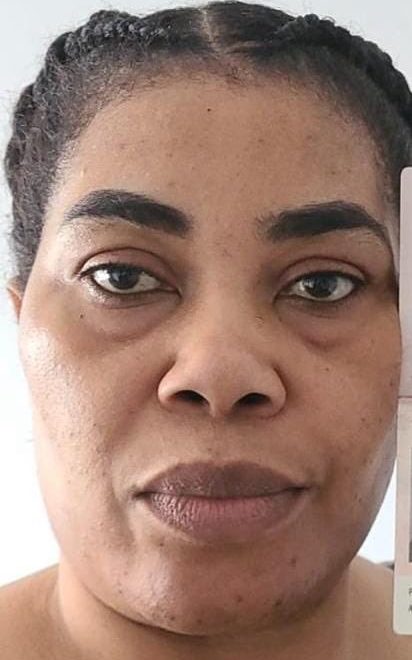Amaka Sonnberger, a 46-year-old Canadian-Nigerian woman, was arrested by Toronto Police on September 1, 2024, for allegedly making hate-motivated threats against members of the Nigerian community. The arrest follows an investigation into online content posted by SAmaka Sonnberger on August 25, 2024, which reportedly included violent threats targeted at specific individuals of Yoruba and Benin descent. Sonnberger has been charged with uttering threats and is scheduled to appear in court on September 2, 2024, at the Ontario Court of Justice.
The Toronto Police Hate Crime Unit is leading the investigation, which has been classified as a suspected hate-motivated offence. The police statement, issued on September 1, highlights the seriousness of the allegations and urges anyone with further information to come forward. Authorities are keen to address the threat and ensure justice for the affected community members.
Legal Framework for Hate-Motivated Crimes
The investigation into Amaka Sonnberger’s case underscores the legal framework for handling hate-motivated crimes in Canada. According to Toronto Police Service (TPS), such crimes can lead to consultations with the Crown, and hate is considered an aggravating factor in sentencing if convicted. Hate speech charges, including those for promoting hatred or advocating genocide, require the consent of the Attorney General and may face delays in prosecution.
TPS elaborates that investigations into hate-motivated offences are often conducted with the support of the Hate Crime Unit (HCU). In cases where a criminal offence is committed and believed to be motivated by bias or hate, the officer-in-charge may consult with the Crown. Hate propaganda offences, which include wilful promotion of hatred and advocating genocide, involve a more rigorous process for laying charges, typically requiring the Attorney General’s consent.
International and Diplomatic Reactions
The case has garnered significant international attention, prompting responses from both the Nigerian House of Representatives and the Nigerians in Diaspora Commission. These bodies have petitioned Canadian authorities to investigate and prosecute Amaka Sonnberger for her inflammatory comments against Yoruba and Benin people. Amaka Sonnberger had previously dismissed concerns about arrest or deportation, despite calls from Nigerian lawmakers for legal action.
The Federal Government of Nigeria has also revealed Amaka Sonnberger’s identity and the nature of her threats, which were directed at individuals of Yoruba and Benin descent. This disclosure has further fueled diplomatic discussions and intensified scrutiny of the case, reflecting the broader implications of hate-motivated crimes on international relations and community safety.
Amaka Sonnberger’s Threat: Anti-Yoruba Remarks Spark Outrage
A disturbing video clip that went viral on X.com last Tuesday has ignited significant controversy and concern across Nigeria. In the video, a woman is heard making inflammatory and anti-Yoruba comments during a virtual meeting on TikTok. Speaking primarily in Pidgin English, she issued a chilling threat against the Yoruba and Benin people. Her comments included a direct call for violence, as she stated, “Record me very well; it’s time to start poisoning the Yoruba and the Benin. Put poison for all una food for work. Put poison for una water, make una dey kpai one by one.” This alarming statement, urging harm through poisoning, has been widely condemned as incitement to violence.
The Amaka Sonnberger remarks have not only been met with shock but have also intensified calls for justice. The video quickly drew widespread attention, prompting Nigerians across various social media platforms to demand her immediate arrest. The incident has highlighted a growing concern over the rising tide of hate speech and divisive rhetoric in the country. Many Nigerians have rallied together, condemning the threats and expressing their desire for legal action against both the woman and any accomplices involved. This collective outcry underscores the broader societal commitment to confronting and eradicating hate speech and violence.
Nigerians’ Reaction: A Unified Call for Justice
In the wake of the video’s circulation, Nigerians have taken to social media to voice their outrage and demand accountability. Prominent figures and everyday citizens alike have expressed their condemnation of the woman’s comments, reflecting a unified stance against such divisive rhetoric. The response has been notably robust, with many praising the Nigerian police for their swift action in arresting the woman and addressing the threat. One social media user, under the handle Mike X, expressed satisfaction with the arrest, stating, “Delighted but not surprised. We omo Yoruba move in silence and get work done. We no dey chest beat. Actions speak louder than works. Tangibles not theoreticals.”
Conversely, other users have highlighted the broader implications of the incident. Yung Bily, for instance, emphasized the unity among different ethnic groups in denouncing the hateful statements. “I’m glad many Igbo’s & other Nigerians spoke against her utterances and the Police have arrested her,” Yung Bily remarked. This reaction not only demonstrates solidarity but also underscores the commitment to ensuring that such divisive actions do not go unpunished. The collective response serves as a powerful reminder of the nation’s resilience and its ongoing fight against hate and intolerance.
Table of Contents
Discover more from OGM News NG
Subscribe to get the latest posts sent to your email.














